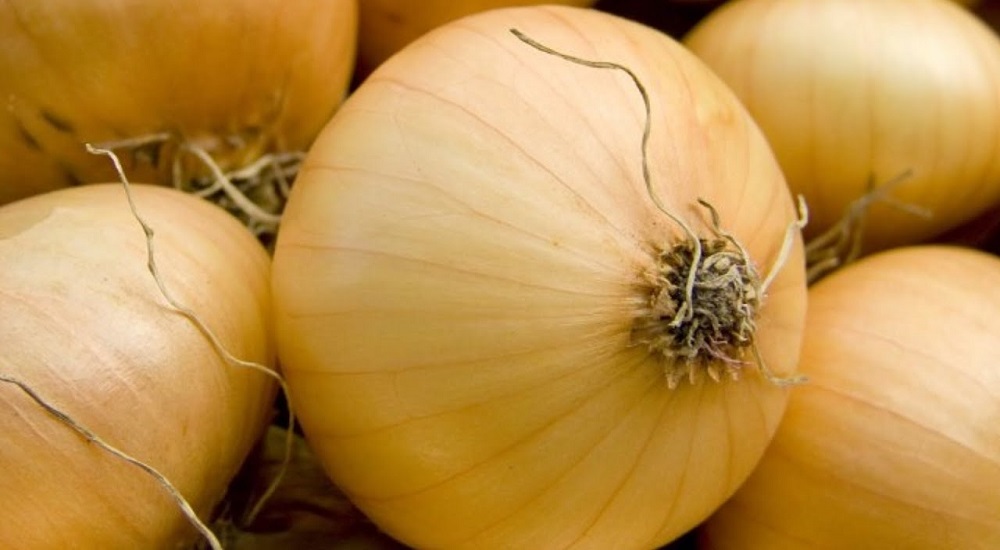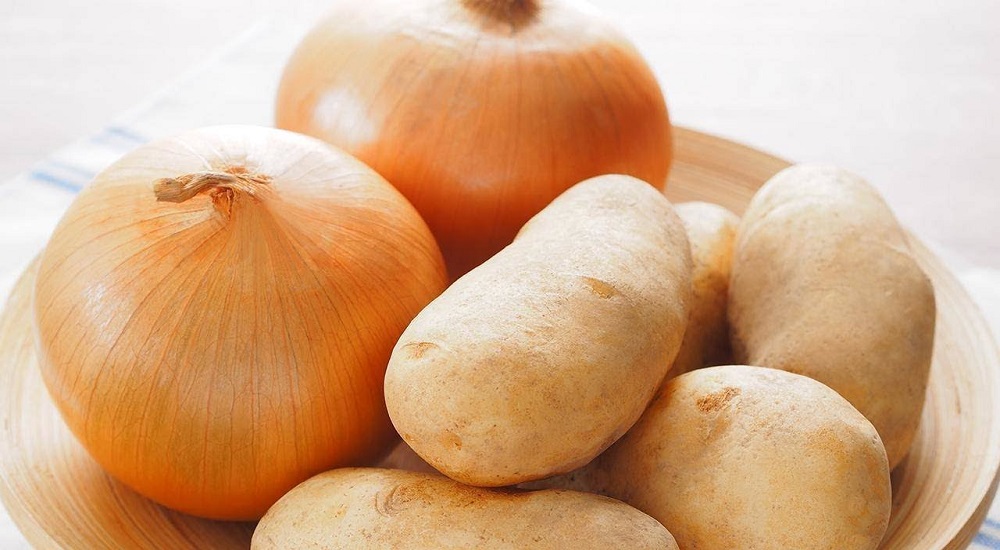When it comes to preserving the freshness and flavor of onions, understanding how to store them properly in the refrigerator is key. Our comprehensive guide on “How Long Does an Onion Last in the Fridge?” dives deep into the nuances of onion storage, offering you expert advice backed by thorough research and culinary expertise. Whether you’re a home cook or a culinary aficionado, knowing the lifespan of an onion in the chill of your fridge not only ensures you maximize its use but also aids in reducing food waste. This article doesn’t just stop at telling you the shelf life; it explores factors that affect an onion’s longevity, shares tips for identifying signs of spoilage, and suggests innovative ways to extend its freshness. Get ready to unravel the secrets of keeping your onions crisp and flavorful for as long as possible, transforming your culinary experiences while keeping your pantry waste-free. Join us as we peel back the layers of this common yet often misunderstood ingredient, ensuring that every slice, dice, or chop brings out the best in your dishes.
Contents
Overview of Onion Types

There are a few main types of onions, each with slightly different storage needs:
- Yellow onions – The most common onion found in grocery stores. They have a medium to strong, sharp flavor.
- Red onions – Often used raw in salads and sandwiches. They have a bold, sweet flavor.
- White onions – Have a milder, sweeter taste than yellow onions. Good for soups and stews.
- Sweet onions – Very low in sulfur compounds, giving them a sweet taste. Popular raw in salads or grilled.
While storage methods are generally similar across types, maturity level and preparation will impact how long onions last.
Optimal Storage Conditions
Onions store best in cool, dry, and well-ventilated areas. The ideal conditions are:
- Temperature between 35°F – 50°F
- Humidity level between 60% – 70%
- Good airflow to prevent mold and spoilage
More mature onions (with thicker, drier skins) will store longer than less mature, freshly harvested onions.
Whole, uncut onions also keep significantly longer than those that have been sliced or chopped.
Storing Whole Onions
Storing Onions Outside the Fridge
Cellars, pantries, or garages tend to provide the right environment for storing whole onion. The key is finding an area that maintains cool, consistent temperatures around 40°F without freezing.
Some good storage solutions include:
- A shelf or bin in a basement or cellar
- A cool, dark pantry or closet
- A sheltered area in the garage
Get creative if you don’t have these traditional spaces. The priority is keeping onions in a space with steady, cool temperatures and low humidity.
Solutions Without Traditional Storage Areas
If you don’t have a cellar, basement, or garage, try these options:
- An unheated mudroom or porch area
- Inside a large cooler or ice chest
- A bin on the floor of a spare bedroom closet
- Under the sink or in the back of kitchen cabinets
- In the crisper drawer of the refrigerator (for short-term storage)
The key is finding an area in your home that tends to stay cool and dry. Avoid warm spots near appliances or in direct sunlight.
Storing Cut Onions
Refrigerating Chopped or Sliced Onions
Once onions are cut open, they lose protective layers and expose more surface area to air. This accelerates spoilage.
To extend the shelf life of cut onions:
- Store in an airtight container in the refrigerator
- Use within 5-7 days for best quality
- Watch for signs of spoilage like mold or sliminess
Proper refrigeration slows down chemical reactions that cause spoilage. Sealed containers prevent contamination and contain ethylene gas released by onions.
Freezing Onions
Freezing Onions for Long-Term Storage
Freezing is a great long-term storage option for onions you may not use quickly. To freeze:
- Peel and chop/slice onions
- Spread pieces out on a sheet pan
- Freeze for 2-3 hours
- Transfer to freezer bags or airtight containers
Frozen onions may become soft and lose some crispness when thawed. However, they retain flavor and can be used in cooked recipes.
Frozen onions will last about 6-8 months in the freezer before quality declines.
Onion Shelf Life
How Long Onions Last in Different Conditions
Here is an overview of approximate onion shelf life by type and storage method:
| Storage Type | Whole Onions | Cut Onions |
| Counter/Pantry | 1-2 months | n/a |
| Refrigerator | n/a | 5-7 days |
| Freezer | n/a | 6-8 months |
Actual shelf life can vary based on onion type, maturity, temperature fluctuations, and other factors. When in doubt, inspect onions and watch for signs of spoilage.
Special Storage Considerations
Keeping Onions Fresh
A few other tips for maintaining fresh onions:
- Store away from light to prevent greening of skin
- Keep dry – moisture causes mold and rotting
- Allow space for airflow to prevent condensation
- Never store onions near ethylene-producing fruits
Safe Handling and Preparation
When preparing onions for storage:
- Discard any onions with cuts, bruises, or wet/damaged skins
- Wash hands before and after handling
- Use clean, dry containers and tools
- Separate onions that will be used soon from long-term storage
Proper handling prevents contamination and decay.
Signs of Spoilage
Identifying Issues with Stored Onions
Check stored onions regularly. Discard any with these signs of spoilage:
- Moldy or slimy skin
- Dark, mushy areas inside when cut
- Shriveled, rubbery texture
- Strong, unpleasant smell
- Visible bruising or damage
Trust your senses. Onions giving off foul odors or showing moistness should not be consumed. When in doubt, throw it out.
Sustainability Tips
Reducing Onion Waste
A few tips for reducing onion waste:
- Properly store whole onions to maximize shelf life
- Freeze leftover chopped/sliced onions for later use
- Compost onion skins, ends, and spoiled onions
- Use onions that are nearing the end of shelf life in cooked dishes
- Adjust recipes to use up onions on hand before they spoil
Planning ahead and taking advantage of an onion’s entire shelf life decreases waste.
Nutritional Benefits

Why Onions Are Worth Storing
Onions provide important nutrients and health benefits. Even when stored for months, they retain:
- Vitamin C, flavonoids, and antioxidants
- Anti-inflammatory and antimicrobial properties
- Prebiotics to support gut health
- Sulfur compounds that may lower cholesterol
Maximizing onion shelf life through proper storage lets you enjoy their nutritional value for longer.
Using Onions Creatively
Reviving and Preparing Near-Spoiled Onions
Onions starting to shrivel or sprout can be revived through rehydration in cool water. Use these techniques to rescue older onions:
- Soak brittle, shriveled onions in water for 1-2 hours before use
- Remove any sprouts and use larger pieces soon in cooked dishes
- Chop up softened onions to sauté and freeze for future recipes
Don’t let onions go to waste. With some preparation, older onions still have valuable flavor and nutrition.
Conclusion
Storing onions correctly takes a bit of planning, but has big rewards. A few degrees difference in temperature and points of humidity increase shelf life exponentially. Take time to find the right storage conditions for your space. Implement tips like proper refrigeration of cut onions and freezing extras. With the right storage methods, onions can last for months, reducing waste and allowing you to enjoy their versatility in cooking. Use your senses to monitor for signs of spoilage, but don’t fear using onions at the end of their prime. With creative handling, even older onions can be revived for consumption. Understand and utilize proper onion storage, and you’ll always have these flavorful, nutritious ingredients on hand when recipes call for them.

At the age of 25, chef and owner Michael Scognamiglio opened with confidence Bacco Italian restaurant.







